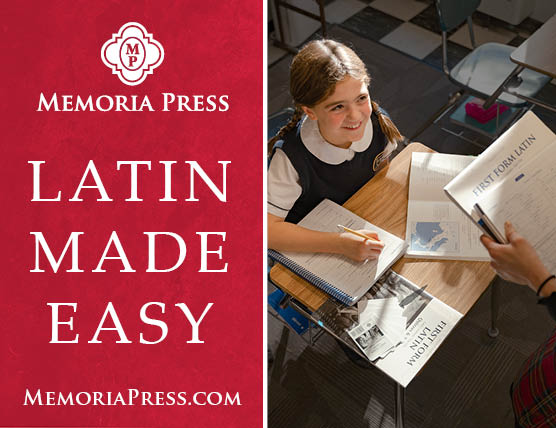Classical education is based on models of learning that go back to the Middle Ages, although its earliest roots lie in the Greek and Roman civilizations. Dorothy Sayers was one of a number of scholars who re-popularized this method of learning in the twentieth century. Classical education challenges the vocational orientation of most modern education by instead concentrating on learning that forms the inner person—their character and virtues. At the same time, classical students learn how to think, how to learn independently, and how to present their own ideas—all of which ultimately prepares them for a wide range of vocations.
The substance of classical education is the liberal arts curriculum. Among those “arts” are three stages or categories grouped as the trivium. The trivium’s three stages are labeled grammar, logic or dialectic, and rhetoric. They provide a sequential focus for education in the elementary through high school years. You start with the grammar stage and work up through the rhetoric stage.
The word “grammar” as used within classical education means much more than the nuts and bolts of a language. Rather it is the basic structure, skills, and knowledge of any subject. Thus, in the elementary grades, a child learns the grammar of math, language arts, social studies, and science, and maybe also the grammar of religion and other electives.
In the logic or dialectic stage, students analyze information and make connections. Then rhetoric describes the stage where the young person has assimilated knowledge, thought creatively about what he or she has learned, and now expresses his or her own ideas through speech and writing at what would likely be considered adult levels.
Some classical education proponents follow the progression of the trivium, making significant changes in methods and materials as they move through the stages. Others tend to mix the stages, for example, by having children in elementary grades participate in Socratic discussions (dialectic type activity) alongside studies of basic English grammar.
A major component of classical education for dialectic purposes is the reading and discussion of real books.








